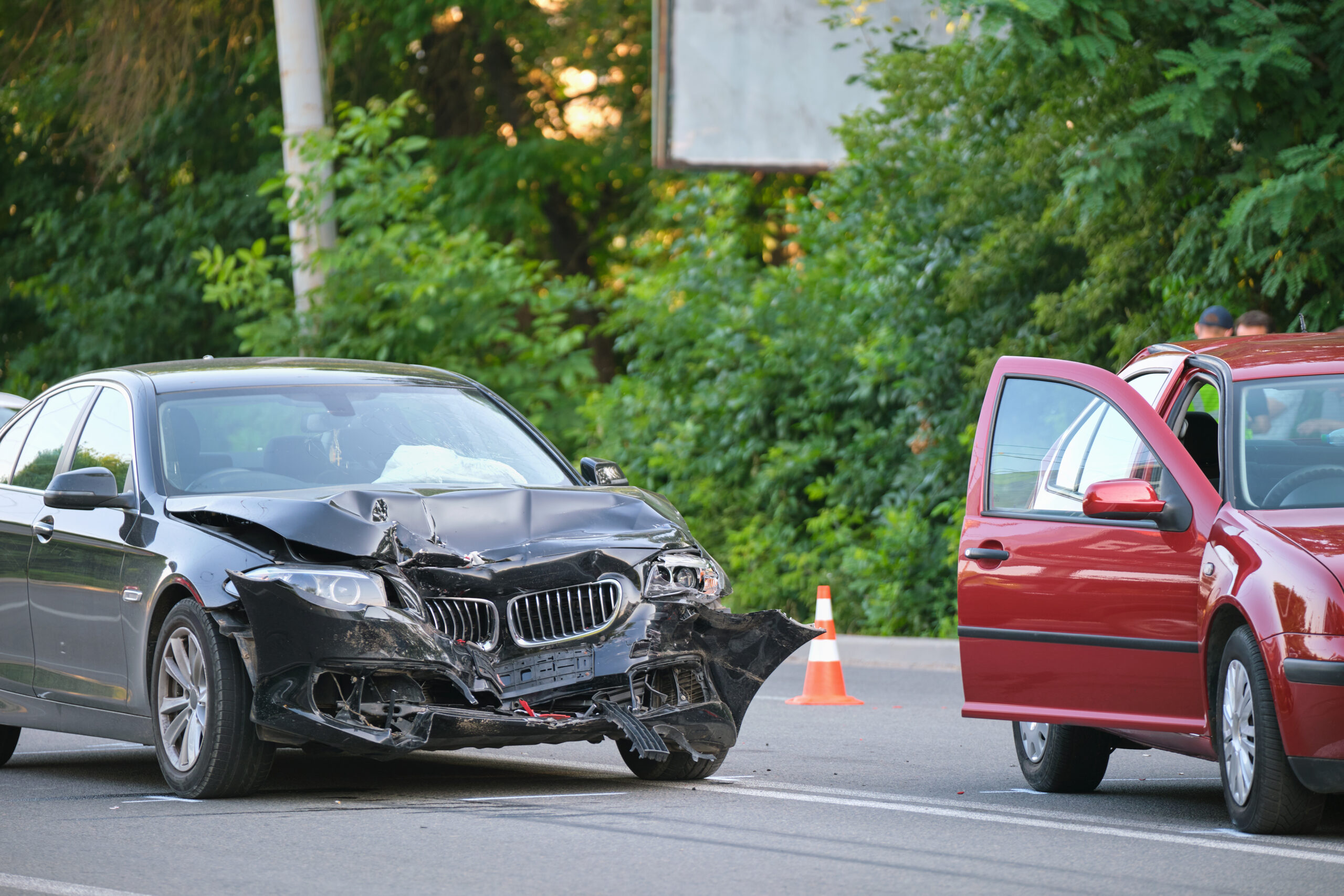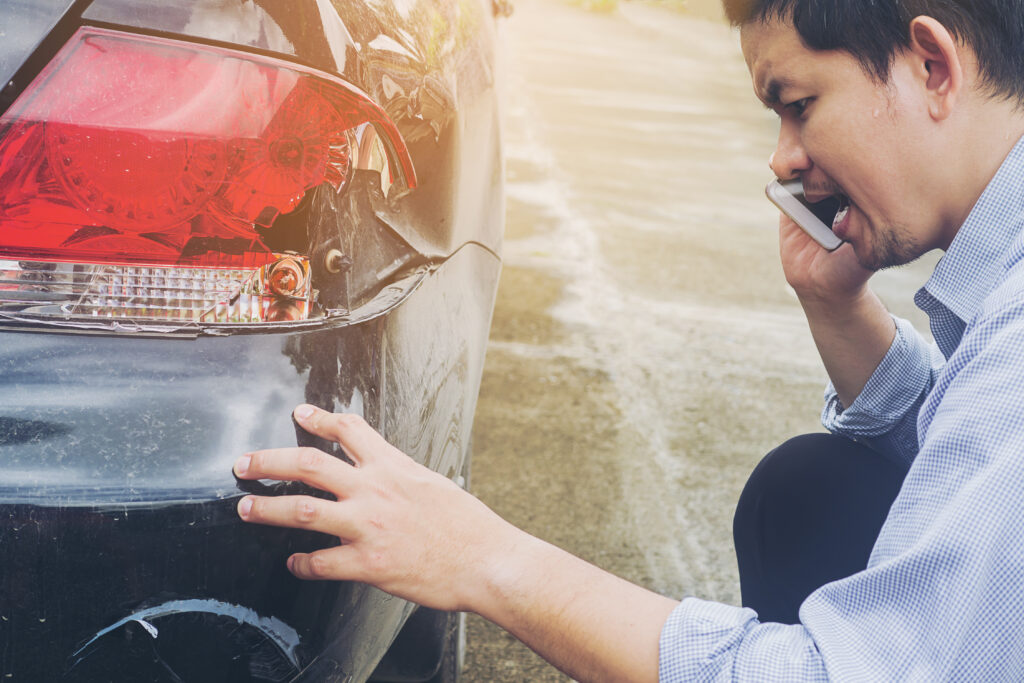
How Long Does it Take to Settle a Car Accident Claim?
What’s the right amount of time for car accident settlements? West Virginia Code §33-45-2 specifies that an insurance company must pay or deny a personal injury claim within 40 days of receipt when submitted manually or within 30 days of receipt when submitted electronically.
However, this timeframe does not necessarily indicate how long it will take to reach a car accident settlement. A study by the federal Bureau of Justice Statistics (BJS) found that car accident injury cases tend to settle within 14 months. Several roadblocks may occur between claim receipt and claim approval—or lack of approval—that can delay a car accident settlement.
Take a look at the factors that influence the settlement process and potential complications that could impact when your car accident claim settles. Then, learn more about how trusted car accident attorneys can help expedite the settlement process so that you can receive your compensation faster.
Factors that Dictate the Settlement Process
How long does it take to settle an auto accident claim? According to West Virginia Code §33-45-2, insurance adjusters should not delay approving or denying car accident settlements. Just like each insurance policy has a statute of limitations for when a claim must be reported, each insurance company in the state of West Virginia has a time limit for when they must approve or deny claims.
When processing and determining payment for a personal injury claim, an insurance company must either pay or deny a claim within 30 to 40 days, depending on if the claim was submitted electronically or manually, respectively. Under WV Code §33-45-2, there are five circumstances when these time limits may not legally apply:
- Another payer or party is responsible for the claim
- The insurer is coordinating benefits with another payer
- The insured has already been paid for the claim
- The claim was submitted fraudulently
- There was a material misrepresentation in the claim
Numerous third-party factors go into the settlement process itself that may dictate how long the process takes as a whole. Here are four additional circumstances not listed by law that can extend the amount of time it takes to file and receive a personal injury claim.
Timeline to Maximum Medical Improvement (MMI)
Personal injury cases begin the moment an accident victim is hurt in a collision. However, a claim should not be filed until injury treatment is completed or the victim has reached maximum medical improvement (MMI). In personal injury law, MMI represents the level at which a car accident victim’s condition cannot be improved further.
Unfortunately, the timeline to maximum medical improvement is far from linear. Car accident victims who suffer soft-tissue injuries, such as whiplash, may complete treatment or reach MMI within weeks. In comparison, car accident victims with a traumatic brain injury (TBI) or severe spinal injury may take months or even years to recover—if they can fully recover.
Car accident settlements are often delayed until a doctor can officially declare that a victim has reached MMI. It is difficult to estimate the total cost of personal injuries sustained in a collision while a victim is still in active recovery, so it’s typically best to wait until a victim has stopped receiving treatment or has been deemed to have reached MMI.

Effort to Calculate All Damages
Damages are the monetary amounts paid to an accident victim by the person or company found to be legally responsible for the victim’s injuries. The amount of time to calculate the wide variety of damages cited in a personal injury case will vary with each case. Damages that are often calculated include:
- Cost of vehicle repairs
- Lost wages, including sick and vacation days
- Prescription medication and medical devices
- Medical expenses, including past and future medical bills
- Out-of-pocket costs, such as travel to doctor’s appointments
- Pain and suffering, including anxiety or physical discomfort
All medical records, expenses, and vehicle repair costs must be gathered to file a personal injury claim. Doctor’s reports citing the potential for lost wages and future medical bills are also required to calculate all damages accurately. Many accident victims need the help of a personal injury attorney to gather this information, especially since it can take months to receive all documents.
Period After the Settlement Demand
Once damages are calculated, the total amount of relevant medical records required to support a personal injury claim are sent to the insurance company. This process is referred to as a settlement demand. In most car accident cases, a personal injury attorney sends the demand on behalf of the injured victim.
It will take time for an insurance company to evaluate a claim. Claims for car accident cases are often reviewed on a first-come, first-served basis, meaning there’s no guarantee your claim will be assessed this week or even next week. By West Virginia law, insurance companies have 40 days to review a car accident claim.
Delay in Evidence Collection or Deposition
According to West Virginia Code §33-45-2, an insurance company has within 30 days of receipt of a claim to request additional information or documentation that the adjuster believes will help process the claim or determine its legitimacy. A claimant should anticipate adding “evidence collection” to the timeline when wondering how long it will take to settle an auto accident claim.
An insurance company may request third-party evidence, such as deposition from eye-witnesses, to support your claim. This process alone can take several weeks or even months, as it’s difficult to coordinate and follow back up with each witness from the scene. A car accident lawyer can help with planning and logistics so you can shorten this delay.

How is Liability Determined and Proven?
In personal injury law, liability is determined by a breach of duty of care. Every driver has a duty of care to others sharing the road to drive responsibly. When a driver breaches that duty of care and causes an accident, any resulting injuries will be considered the at-fault driver’s responsibility. The at-fault driver can be held liable for the injury victim’s medical bills and related damages.
To prove liability in the state of West Virginia, the at-fault driver must be found negligent. A victim must prove that the driver acted negligently, such as excessive speeding, and that this negligence was the direct cause of the victim’s damages—meaning a victim would not have injuries or vehicle damage if it had not been for the negligence of the at-fault driver.
Unexpected Complications that Could Affect When Your Case Settles
Some unforeseen complications can impact when your auto accident case settles. The most significant complication that could derail a personal injury claim is little to no evidence of liability. If the insurance company does not believe you have a valid claim or liability is in dispute, a case can take longer to settle.
Another complication that could affect when your case settles is the debate over shared fault. West Virginia has “modified comparative negligence laws,” which means that both drivers involved in an accident can share fault for a collision. Determining fault could become even more complicated if there were multiple cars involved in one accident.
Lastly, financial complications may impact the settlement timeline for your personal injury claim. Insurance companies are notorious for slicing down high settlement demands, which can be the case if you’ve experienced a severe injury that requires intensive medical treatment or future and ongoing medical care.
When You Should Negotiate vs. File a Lawsuit
The majority of personal injury cases, including auto accident cases, settle out of court, and only 3% of personal injury cases continue to trial, according to a study by the federal Bureau of Justice Statistics (BJS). In most cases, an attorney can spearhead settlement negotiations, so victims do not need to enter the litigation process.
There are some instances when it may be best to file a lawsuit, including:
- The at-fault motorist had no auto insurance coverage or was underinsured.
- The settlement offers from the insurance company are drastically lower than anticipated.
- The original personal injury claim has been denied.
Filing a lawsuit will further delay the settlement process. Going to court entails multiple time-consuming phases between both the plaintiff (injured party) and the defendant (at-fault party), potentially including the pleading phase, discovery phase, pre-trial and trial phases, and mediation.
How Long Does the Settlement Check Take to Arrive?
It takes approximately four to six weeks for a settlement check to arrive. First, the insurance company will require the injured party to sign a release form. This release form officially settles the claim and prohibits the injured party from filing an additional lawsuit against the at-fault driver or another party involved in the accident.
Once the release form has been signed and received by the insurance company, the insurer will write a check for the agreed-upon amount of money. The check is sent to the personal injury attorney who represented the injured party. The lawyer will deduct their attorney’s fees and give the remaining balance to the victim as a new check.
Why Working with a Personal Injury Lawyer Could Get You a Faster Settlement
It’s no secret that insurance adjusters can be difficult to deal with. There’s an entire list of what not to say to insurance companies that could land your claim in hot water. The average person isn’t well-versed in accident law like an adjuster, leaving them at risk for being played by the insurance system. This is why working with a car accident attorney is so valuable.
The best car accident attorneys maintain constant communication with the insurance company to expedite your settlement process. They will also maintain consistent communication with you at all times to help manage your expectations for when a settlement check will ultimately arrive. Most importantly, an attorney will never let you feel rushed into a settlement.
The trusted attorneys at Miley Legal Group take the fear out of the legal process. We leverage all of our resources to guide you through the settlement process, from gathering evidence to calculating damages. Contact us today for a free consultation to learn more about how we can potentially expedite your claim and secure your settlement check.

